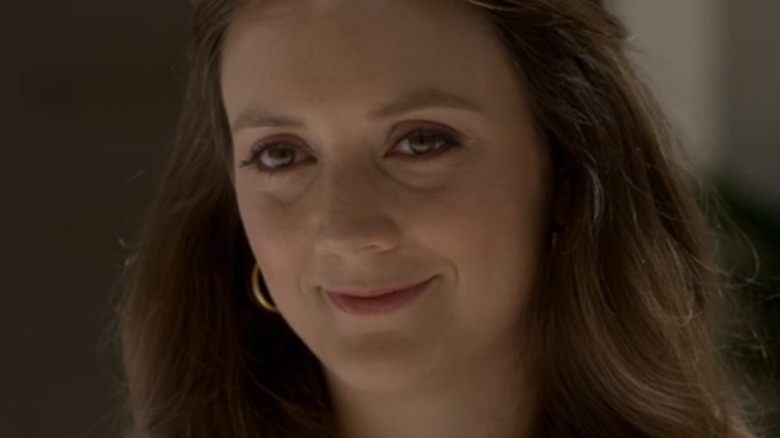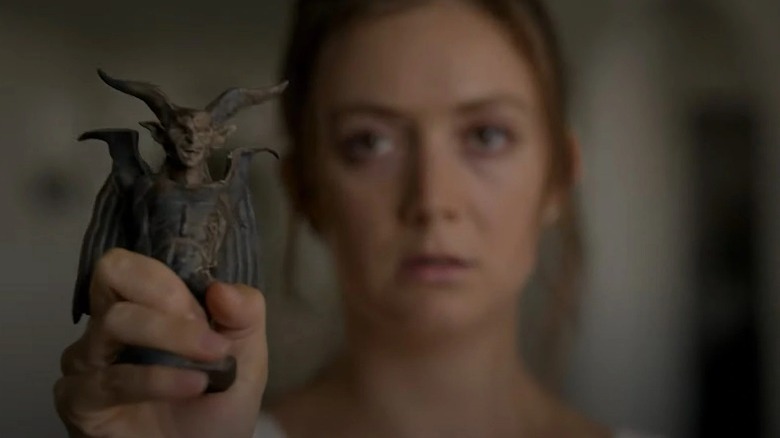The Most Cringe-Worthy Trope In American Horror Stories According To Fans
Horror is a difficult genre to get right, no matter the medium. However, the creative duo of Ryan Murphy and Brad Falchuk made it look easy ever since debuting "American Horror Story" on FX way back in 2011. Season after season, the show has pulled in countless viewers to check out the most unsettling yet intriguing tales ever told on the small screen, brought to life by a troupe of recurring actors alongside a handful of fresh faces. At the time of this writing, the series has reached 10 seasons, and its television footprint will only expand from here.
In hopes of doing something more with the groundwork laid by "American Horror Story," Murphy and Falchuk introduced "American Horror Stories" during the summer of 2021. Similar to its predecessor, which tells a brand new story from season to season, this program takes an anthology approach per episode. Week in and week out, viewers meet a new set of characters in a new setting, but rest assured, the level of fright is still the same. Although, the forms that they take often vary, prompting fans to debate where each episode ranks in relation to the rest.
As is the case with any anthology project, "American Horror Stories" has some great episodes, as well as some that fall a tad short. However, as far as this specific installment goes, it detrimentally includes a trope that fans wish it didn't lean into regardless of the context.
Ba'al utilized a Hollywood stereotype that fans are tired of
The fifth episode of "American Horror Stories" Season 1, titled "Ba'al," told of a mother named Liv Whitley (Billie Lourd), who uses a mysterious fertility totem and thus invites dark entities into her home. Her housekeeper, Norma (Misha Gonz-Cirkl), notices the strange occurrences that come as a result and is sent over the edge when Liv presents her with the demonic-looking trinket. Flustered, Norma removes her apron and begins speaking in Spanish before announcing that she no longer wants anything to do with the situation — a trope that some viewers didn't find necessary for the show to utilize.
"I'm tired of Hollywood portraying Latino and Hispanic people as superstitious lunatics and/or human supernatural detectors," wrote Reddit user jvp180, explaining that it's not uncommon for this lazy stereotype to arise in mainstream film and television, even in the modern-day. JMiranda7878 shared these feelings on the scene, voicing their frustration in the use of this uninspired trope, and sapphireskiies notes that it's also irritating how often Hispanic people are cast as maids or housekeepers with next to no character depth. Redditor gifted_eye adds, "Never really liked Ba'al to begin with, now I have another reason to hate on it."
It's no secret that entertainment is riddled with tired tropes, unacceptable stereotypes, and lazy typecasting. Slight improvements are consistently made, but as "American Horror Stories" proves, the industry still has a long way to go.

